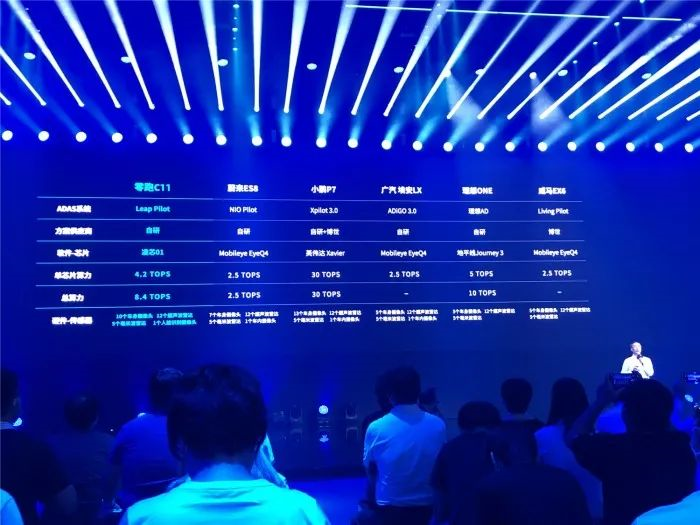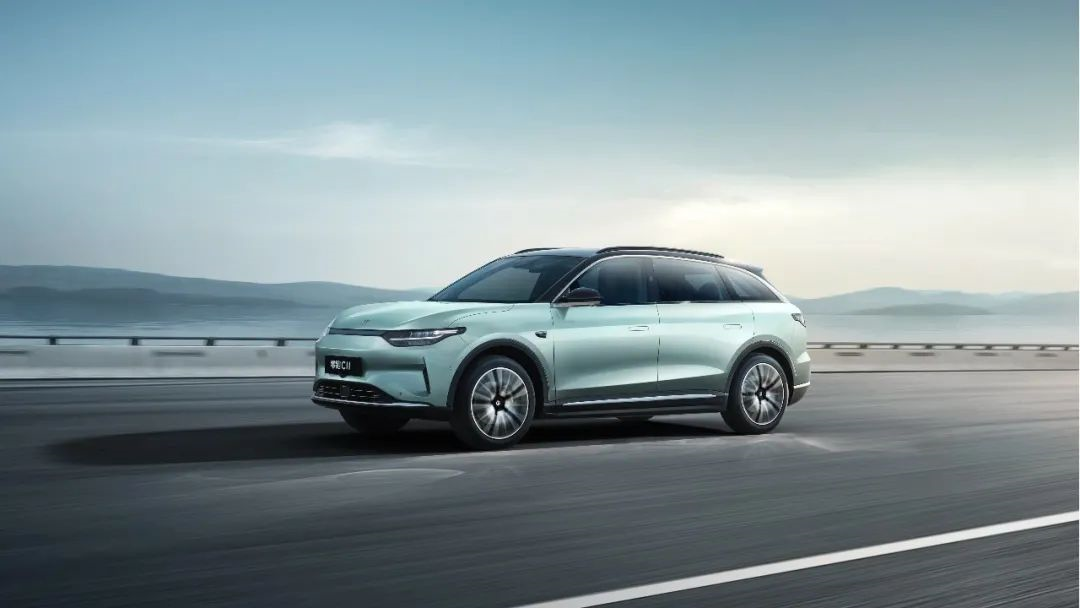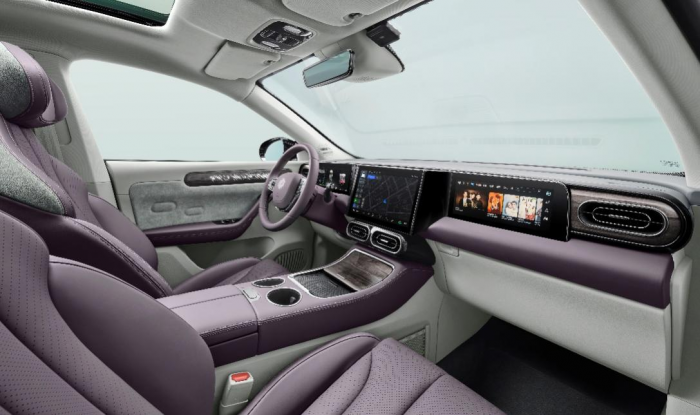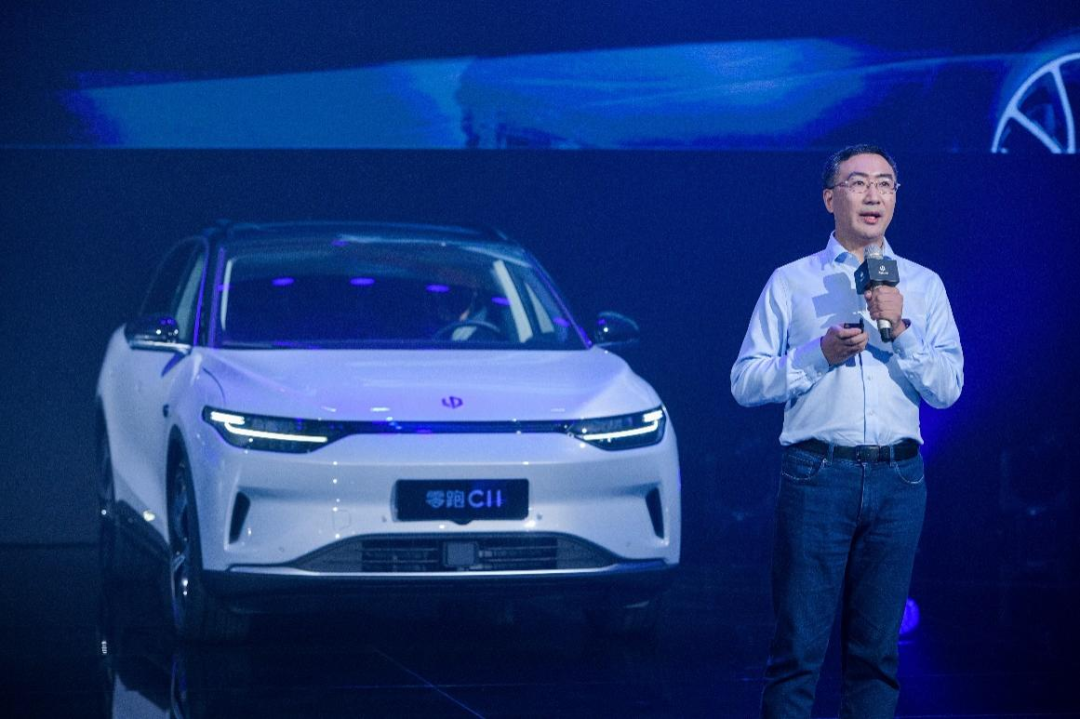The inspiring story of LINGPAI’s Night
Unlike LINGPAI’s previous press conferences, the Night of LINGPAI started with an inspiring story.
Security cameras have become ubiquitous in our lives nowadays with its presence on almost every street corner. It used to be one of Dahua’s main businesses, but 10 years ago, the core technology of this business was held by foreigners. However, the following story was quite amazing. Zhujianming, at that time, decided to break the foreign technology monopoly by breaking through the underlying technology. Consequently, Dahua’s fully self-developed security camera ultimately went global and stepped into the world.
So, what is the purpose of telling this story? I believe this event is closely related to Lingpai’s “self-developed” strategy.
Zhujianming, who was 26 years old in 1993, founded Dahua with 5000 yuan together with Dahua’s chairman, Fuli Quan. At the time, Zhujianming served as the CTO and was responsible for establishing the supply chain system. Unlike traditional profit-driven businessmen, Zhujianming, with a technical background, knew the importance of technology to a company. Regardless of the era, technology has always been the key factor in driving industry progress.
In 2015, Zhujianming led the establishment of Lingpai, which, despite not being as hyped as “NIO,” can definitely be considered one of the first batch of new car forces. Although the outside world may only see Lingpai’s slow start, Zhujianming himself knows that speed is not important to him. He wants to go further, so he must set a higher starting point for himself.
Under the extremely well-structured supplier system, Lingpai’s self-research strategy seems to be going the wrong way. However, Zhujianming, who has benefited from “self-research,” once confidently stated, “Lingpai is the second car manufacturer in the world with complete independent R&D capabilities of smart electric vehicles after Tesla.” This confidence is based on Dahua’s technology accumulation, and his recognition that “self-research” is the only way to respond to the rapidly changing automotive industry.
Today, most people still view automotive products with traditional views, but we can still feel the change: technology no longer has a premium. The subscription-based advanced driving assistance system is a prime example. Whether the user activates the system or not, the hardware is already pre-installed in the car, and it has nothing to do with the value of the vehicle.In the future, the core attribute of automotive technology is inclusiveness, so technology will gradually enter users’ lives. When people can’t live without the new experiences brought by these new technologies, only companies that master the core technology will stand undefeated in the industry. What about others? Perhaps they will be the puppets of “OEMs” for others.
To embrace the future, Zhū Jiāngmíng’s first move at LING Pāo was to develop chips on its own. And LING Pāo C11, which has just been launched, is the first product equipped with LING Yun chips.
Intelligence as the Core, Self-Research as the Base
The Leap Pilot 3.0 intelligent driving-assistance system equipped on LING Pāo C11, including chips, algorithms, perception, data and other core technologies, is completely self-developed. Almost all the core chips of the whole ADAS system of the C11 are made in China. Among them, the LING Yun 01 chip is China’s first AI intelligent driving chip with complete independent intellectual property rights. In addition, LING Pāo’s algorithm team won the first place in Waymo’s automatic driving algorithm 2D test challenge in June this year.

Leap Pilot 3.0 intelligent driving assistance system, which is equipped with two LING Yun 01 chips, has a computing power of 8.4T. At the same time, it includes 28 sensors, such as 11 cameras, 5 millimeter-wave radars and 12 ultrasonic radars, and reserves 128G of high-precision map storage space for future upgrades.
During the delivery phase, LING Pāo C11 will provide 10 functions, including ACC adaptive cruise control, AEB automatic emergency braking system, FCW forward collision warning, etc. In the future, it will also provide 12 functions, including LCC lane centering assist and steering wheel departure warning, through OTA updates.

The more it is used, the smarter it gets. The Leap AI intelligent cockpit system of LING Pāo C11 is equipped with the industry’s highest-level Qualcomm Snapdragon 8155 digital cockpit platform, 12G running memory, 128G storage space, and its performance has been improved nearly three times more than other advanced models.
C11 can instantly and accurately identify faces and match IDs, achieve automatic adaptation of 15 functions such as air conditioning, rearview mirrors, ambient lights, music, seats, and driving modes, and it can control more functions than its competitors.
 Meanwhile, C11 comes equipped with an immersive triple-screen entertainment system. When activated in cinema mode, all passengers can watch a single movie simultaneously. The central console and co-pilot screens also support split-screen viewing of different content, with the co-pilot able to interact independently using a Bluetooth headset. Additionally, with Fly-Share functionality, users can share videos with each other.
Meanwhile, C11 comes equipped with an immersive triple-screen entertainment system. When activated in cinema mode, all passengers can watch a single movie simultaneously. The central console and co-pilot screens also support split-screen viewing of different content, with the co-pilot able to interact independently using a Bluetooth headset. Additionally, with Fly-Share functionality, users can share videos with each other.
Furthermore, C11 allows for flexible interaction between individuals, cars, phones, and homes. Through voice calling the virtual assistant “Xiao Ling,” users can have a continuous conversation and control the vehicle in separate zones. More than ten functions, such as remote control parking, co-pilot seat adjustment, and battery charging reservation, can also be accessed through an app. C11 also supports interconnectivity and control with smart homes.
“When all ‘high-end configurations of the past’ have lost their premium value, who will reoccupy the high ground of consumption?” asks Zhu Jiangming. “In the past, high-end configurations often came with high prices, but C11 completely breaks this value rule. As you can see, all of these configurations, comparable to those of luxury cars costing 500,000 RMB, can be enjoyed for less than 200,000 RMB on C11. These luxury configurations on C11 express Zero Run Electric Vehicle’s sincerity more than any rhetoric.”
On this C11 priced at 159,800-199,800 RMB, we see the longest 2930 mm wheelbase for its class. With dual motors, it boasts a maximum output power of 400 kW, a maximum torque of 720 N·m, and the ability to accelerate from 0 to 100 kph in under 4 seconds. With its 90-degree battery, it has a range of 610 kilometers. Other high-end features include high-fidelity audio, frameless doors, and genuine leather interiors.
Although we don’t yet know what experiencing the Zero Run C11 will be like, I can already feel Zhu Jiangming making his next big move with this car. Most of the aforementioned configurations used to be subject to a premium price in the “old days” of automobile products, but they are now all available in a car costing less than 200,000 RMB.Actually, not just Zéro Run Automotive is doing this, but the entire domestic automotive industry is striving to eliminate the premium for high-end configurations, which could exceed joint-venture brands in cost-effectiveness and thereby regain market dominance. I believe this market competition trend will accelerate the transformation of automobiles into real travel tools. Without premiums, there will be no distinction between high and low-end products, which will make it difficult to reflect the unique value of brands. Afterward, all automotive products will tend to be in the same form.
At this time, retaking the high-end consumer market is emerging intelligent technology, which is likely to be represented by AI technology in automobiles, specifically autonomous driving. This may be why Zhu Jiangming dared to compare his Zéro Run Automotive with Tesla.
Conclusion
About Zéro Run Automotive’s self-research, everyone has given different explanations, but at least self-research has positive effects on Zéro Run Automotive’s development, whether it be for cost reduction or future planning. Because it’s very difficult to use self-research as a gimmick, after all, consumers can’t get the extra benefits of self-research.
This article is a translation by ChatGPT of a Chinese report from 42HOW. If you have any questions about it, please email bd@42how.com.
